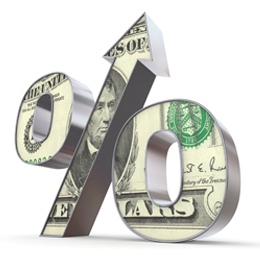Will she or won't she ... raise rates, that is?
by Brad MacMillan, CIO, Commonwealth Financial Network
The big news this week is the Federal Reserve’s rate-setting meeting tomorrow and Thursday. This is one of eight meetings held each year, approximately every six weeks. The remaining ones in 2015 are in October and December.
The reason this matters is because, once again, the Fed has to decide whether to start raising rates or not. I have argued before that, economically, it doesn’t really matter that much, but from an investor confidence perspective—and thus for the markets—it does. The difference between these two is why I think the Fed will not raise rates this week but will set the stage for an increase in October.
The argument for a rate hike
Let’s take a look at the case for raising rates:
- Economic activity is continuing to grow.
- Employment growth is at levels last seen in the mid-2000s and 1990s.
- Low oil prices continue to stimulate vehicle purchases.
- The list of positive news goes on and on . . .
You can legitimately argue over whether the current growth level is acceptable or not, but the key point is that we are not in a recession or even close to one, and we’re certainly not in a crisis. Interest rates were set at their current all-time low when we were indeed in a crisis. While they were appropriate then, they are not now.
That’s the big picture. What the Fed is actually supposed to be looking at, though, are two specific things: employment and inflation.
Employment. We are now well below the level of unemployment the Fed initially specified as a catalyst for a rate hike, and we have been for quite a while. More, we are at a level that the Fed considers full employment. You could argue that the stats are misleading, but again, by the Fed’s own figures, we are now at least close to normal—which does not justify crisis-level interest rates.
Inflation. The same goes here. Low inflation has historically come from a lack of demand or a weak economy. Today, we have a reasonably strong economy where low inflation is coming from high supplies of gasoline and manufactured goods, not from lack of demand. In fact, lower prices help increase demand, so low inflation is actually stoking growth. If you couple this with the fact that core inflation (excluding energy and food) is very close to Fed targets, then once again we are nowhere near crisis levels—and do not need crisis-level interest rates.
Reading this, you would think that I believe rates should go up, and you would be right. There is, however, another argument.
The potential risk to financial markets
Recently, we have seen the markets drop around the world. Although here in the U.S. we have bounced back somewhat, other markets continue to decline. Confidence has been damaged, and investors remain nervous. Historically, a Fed rate increase has caused markets to decline, and one of the questions the Fed faces is whether now is a good time to make markets even more nervous—and how much damage would result.
Which decision—go or wait—is likely to cause less damage? While the economy says go, the negative consequences of waiting a bit longer are not significant. The negative consequences on the markets of moving now, however, might be significant. If the Fed is looking to do no harm, which is consistent with past behavior, I think the decision to wait is probably the one the Fed will make.
This does not get the Fed off the hook, of course. Rates still have to go up at some point soon, and markets could be even more turbulent in October or December. The Fed will therefore want to lay the groundwork for an increase in one of the next couple of meetings. Expect a signal to that effect or, at a minimum, a revision to the dot plot that signals when the increase is expected. This meeting should be one of the last course corrections for the communications policy guiding the markets to a rate rise.
Arguably, every time the Fed postpones, the stakes rise even further for the next meeting. These, however, are problems for another day and can be dealt with then. Right now, the major problem is the markets, and that is what I believe will drive the Fed’s decision.
Copyright © Commonwealth Financial Network
















